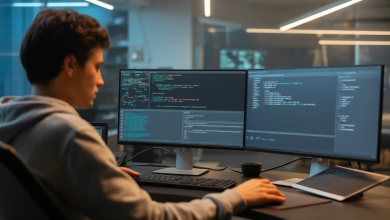
In a world increasingly shaped by algorithms, it’s no surprise that even matters of the heart are influenced by artificial intelligence. From the way we meet new people to how we communicate and understand our partners, AI is quietly playing matchmaker, therapist, and coach. But the question remains: can it genuinely help us build stronger, healthier relationships—or is it just another layer of technology getting between us?
The Algorithm Behind the Swipe
Dating apps were among the earliest mainstream applications of AI in relationships. Platforms like Tinder, Bumble, and Hinge rely on machine learning to personalize matches. These systems take your preferences, past behavior, and sometimes even location or time of day into account to suggest who you might like.
Over time, AI learns your patterns—what profiles you linger on, who you message, and who you ghost—and adjusts its suggestions. This isn’t just about increasing matches; it’s about optimizing for compatibility based on your behavioral data.
But despite this sophistication, many users still feel overwhelmed, fatigued, or disillusioned. After all, an algorithm can predict who you might want to talk to—but it can’t guarantee chemistry.
AI-Powered Conversation Starters (and Lifelines)
Beyond matchmaking, AI is being used to help break the ice. Some dating apps now offer suggested messages based on mutual interests or even sentiment analysis of previous chats. It’s a gentle nudge for those who don’t know how to begin or feel awkward initiating a conversation.
Once in a relationship, AI tools are also being applied to improve communication. Apps like Replika or Woebot, originally designed for mental health support, have found users turning to them for advice on navigating relationship stress, breakups, or even just venting after a disagreement with a partner.
While not replacements for therapy or human connection, these tools offer an always-available, judgment-free space to process emotions—a growing need in an overstimulated world.
Emotional Insight Through AI
One of the more promising uses of AI in relationships is emotional recognition. Devices and apps are being developed to read vocal tone, facial expressions, and even word choice to gauge emotional states. Some tools claim to help couples detect when tension is rising or communication is breaking down—before it turns into an argument.
In theory, this could help people become more self-aware, emotionally intelligent, and proactive in addressing issues. But critics worry about the intrusion of technology into such intimate spaces. Is it helpful, or is it just a modern form of surveillance?
Can AI Help Fix a Broken Relationship?
The idea of turning to AI to fix a relationship may feel a bit far-fetched—but it’s not unheard of. Relationship coaching apps are on the rise, offering everything from conflict resolution tips to daily “relationship check-ins.” These tools often combine psychology-based prompts with data-driven suggestions to help couples better understand each other’s needs.
Still, while these platforms may help surface blind spots, lasting change usually requires more than push notifications or automated advice. Genuine connection often starts with honest, uncomfortable, human conversations.
For those seeking deeper insights into common relationship struggles, some turn to thoughtful, human-curated advice that resonates on a personal level—often outside the realm of automation.
Love Is Still a Human Story
At its best, AI in the relationship space acts like a compass—it helps point you in a certain direction. But it can’t walk the journey for you.
Falling in love, staying in love, and rebuilding trust after a rupture are all deeply human processes. They require patience, vulnerability, and a willingness to be present—qualities no algorithm can replicate.
As technology continues to evolve, the key may lie in using AI as a support system rather than a replacement. It can simplify the search, offer guidance, or provide emotional context—but the heart of the matter remains uniquely human.



